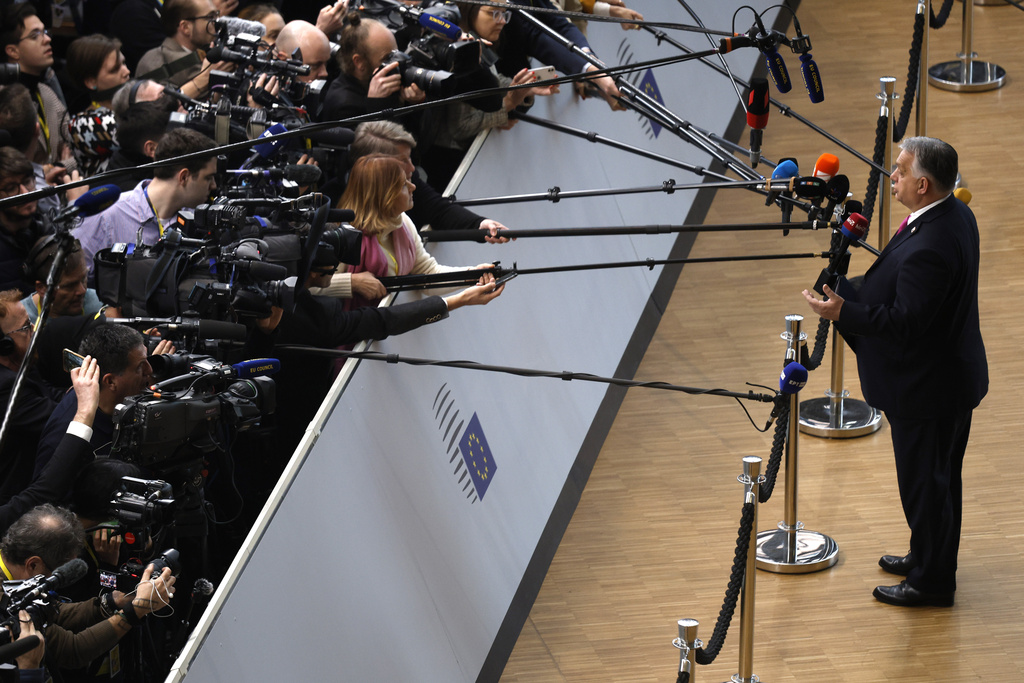The European Union will open accession negotiations with Ukraine and Moldova, announced European Council President Charles Michel.
“This is a historic moment and shows the credibility and strength of the European Union,” Michel said, referring to the decision in Ukraine.
According to several sources, Prime Minister Viktor Orbán, who has previously been a vocal opponent of beginning accession talks, left the room during the vote but did not veto it, resulting in the unanimous decision.
The move is considered highly unusual — in fact, such a vote has never occurred before simply because one EU leader left the room, and according to Politico, Orbán left the room at the suggestion of Chancellor Olaf Scholz. One EU official described the move as a “trick.”
“He used an old trick from his time with the Young Socialists,” said one official who was at the EU summit, referring to the youth organization of the Social Democratic Party (SPD), where Scholz served as chairman in the 1880s.
However, the Politico piece appears to be highly misleading, with numerous outlets, such as the BBC, writing that “Mr Orbán left the negotiating room momentarily in what officials described as a pre-agreed and constructive manner, while the other 26 leaders went ahead with the vote.”
[pp id=101841]
According to a video posted on Facebook, the prime minister stated that he left the room on purpose. “(The Hungarian government’s) position is clear: Ukraine is not ready for us to start negotiations with it on EU membership,” Orbán said. “It is a completely senseless, irrational and wrong decision to open negotiations with Ukraine under these circumstances.”
But after nearly eight hours of debate, the other 26 countries insisted that this decision should be taken and decided to “go their own way.” Hungary does not want to share this very bad decision” and therefore abstained.
Irish Prime Minister Leo Vardarkar said after the meeting that Hungary’s gesture of not using its veto power must be respected, as Orbán remains opposed to the decision.
“In fairness to Prime Minister Orbán, he made his case, made it very strongly. He disagrees with this decision, and he’s not changing his opinion in that sense, but essentially decided not to use the veto power,” Varadkar said. “I have to say, I respect the fact that he didn’t do that because it would have put us in a very difficult position as a European Union.”
Several news sources and commentaries pointed out that as the accession process is a long and convoluted one with many steps, which all have to be unanimously agreed upon, Hungary will have ample opportunities to veto the process.
Hungary, however, did not accept the EU’s proposal for a €50 billion aid package to Ukraine and the decision on that has been postponed to an extraordinary summit in January. At the EU summit, EU leaders also agreed to declare Georgia a candidate country and open accession negotiations with Bosnia and Herzegovina once the needed conditions are met.





